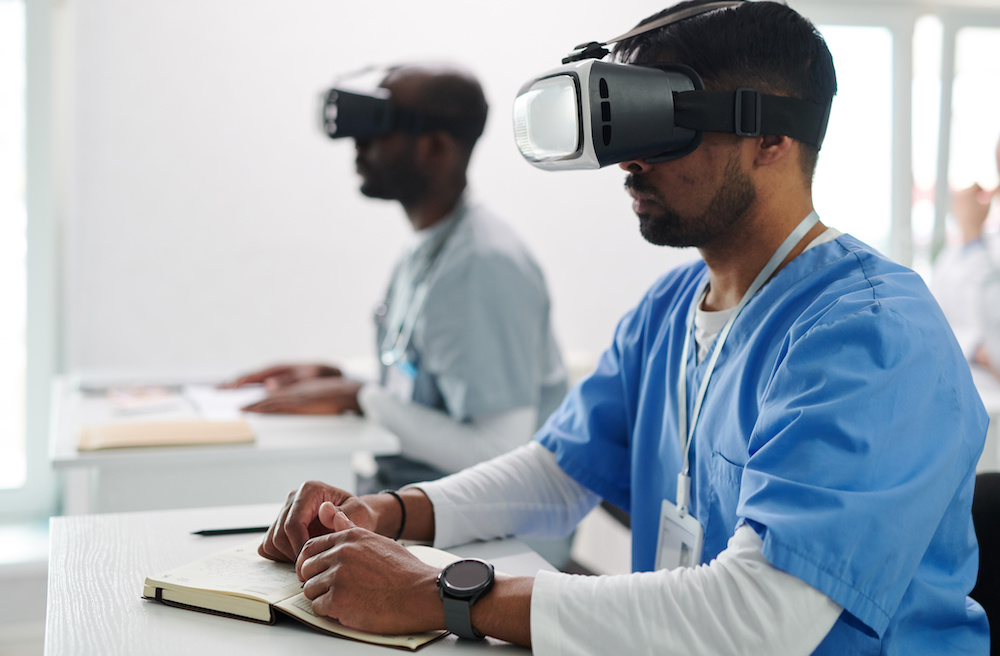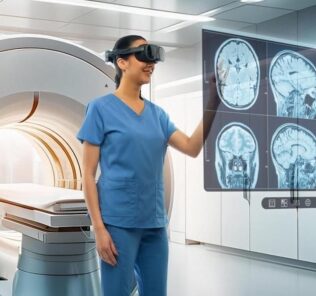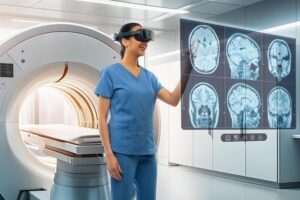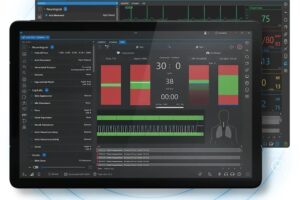How Gamification Improves Healthcare Simulation Medical Training
Education, especially medical education, has evolved rapidly as new technologies are incorporated into the healthcare simulation learning experience. Clinical simulation, including remote learning and virtual training, is becoming the standard in healthcare education and is replacing more traditional classroom instruction. Specifically, gamification plays a major role in ensuring that these teaching technologies are effective and engaging. This HealthySimulation.com explains how gamification in healthcare education improves the quality of training and leads to better patient outcomes, and shares SimX solutions that help make this possible.
Ultimately, gamification is the integration of gaming concepts into non-gaming scenarios. Put simply, gamification is taking something that is not designed to be a game and incorporating elements of gaming. Examples of gamification include adding elements such as scoring, conflict/challenge, and rewards to educational activities.
This practice has proven helpful in improving the effectiveness of training and education as well as improving learner and trainee engagement. Gamification can be used to foster competition against oneself and others, promote teamwork and cooperation, and make educational activities more fun.
Sponsored Content:
How Does Gamification Improve Medical Training?
Gamification can improve education in healthcare by providing motivation. This can involve intrinsic motivation, such as wanting to beat a high score or unlock achievements, or extrinsic motivation in the form of rewards (including both tangible and virtual rewards). In other words, gamification can help make learning more fun. More importantly, gamification can enhance the learning experience, framing the material to be learned as a challenge to be conquered.
Benefits of Virtual Collaboration
As traditional classroom settings become decentralized, there is a growing need for innovative ways to promote teamwork and collaboration. Virtual collaboration (VC) in medical training offers increased opportunities for healthcare professionals to learn how to work together as a team to tackle challenging problems. Combining VC with virtual reality (VR) allows individuals at different physical locations to train together in an immersive virtual setting, allowing people to interact as they would in a real-life situation.
Sponsored Content:
Physicians, nurses, other medical professionals, and paraprofessionals do not function in a vacuum—they must operate as part of a team. Gamification in nursing education and other medical training can enhance teamwork and collaboration, allowing people to work together to achieve goals and even compete against other teams.
Solutions for Medical Errors
Gamification in healthcare education can affect real-world patient outcomes. Traditionally, hands-on training in surgical specialties and emergency medicine is limited. How do you train to perform complex procedures without first-hand experience? How do you train in an environment where you can learn from your mistakes without endangering real people?
Virtual training, through virtual reality or other types of healthcare simulations, can offer the opportunity to learn how to perform difficult procedures and manage a team in challenging scenarios. Ultimately, gamification in healthcare education leads to a decrease in medical errors and improved decision-making skills. Experience is the best teacher, so increasing exposure to stressful and challenging situations in the virtual world before the real world is only logical.
SimX offers nursing, military medical, and EMS virtual reality solutions to help provide this education. The company provides 150 nursing simulations in up to 97 environments with fully customizable patient dialogue. Military medical VR solutions include fully immersive and comprehensive training scenarios that include battlefield triage, trauma treatment, helicopter rescue, and tactical casualty combat care. Further, from treating a crash victim in an ambulance to diagnosing a stroke in a patient’s home, the SimX EMS package comes with 12 virtual reality simulations targeted at first responders.
VR Enables and Enriches the Remote Learning Experience
Virtual reality has become more accessible than ever. This technology is a cost-effective approach to virtual learning that is engaging and adaptable to various types of training. This is especially true in the medical field where simulation-based learning can be expensive, cumbersome, and rapidly outdated. VR can provide immersive, customized, and affordable training that enriches remote learning.
Additionally, VR is extremely adaptable. SimX develops custom VR training to meet specific needs, incorporating scenarios that are designed to meet unique requirements. SimX has developed a number of different VR training programs for a wide variety of customers. Everything from life support certification (BLS, ACLS, and PALS) to military medical training can be performed using VR. Whatever a company’s healthcare training needs are, SimX can provide a customized VR experience to help you offer the best training possible.
More About SimX
SimX, previously called SimXAR, is a healthcare software company specializing in medical simulation, virtual reality, augmented reality, and medical training and education. The company brings virtual and augmented reality into the realm of healthcare simulation and training. SimX was founded by physicians in training at Stanford, the University of California at San Francisco, and the University of California at Los Angeles. They understood that simulation practice and training are extremely beneficial to both learners and clinicians, and hoped to use virtual reality to make simulation cheaper and more accessible, to ultimately reduce medical error and increase patient safety.
Seeking to push simulation forward, SimX developed a software system that was the first comprehensive professional-grade VR medical simulation system product available on the market. Founded in 2013 and headquartered in Mountain View, California, the platform allows medical teams to replace expensive manikins with incredibly flexible simulated patients, backed by a robust case creation engine.
Learn More About SimX
Lance Baily, BA, EMT-B, is the Founder & CEO of HealthySimulation.com, which he started while serving as the Director of the Nevada System of Higher Education’s Clinical Simulation Center of Las Vegas back in 2010. Lance is also the Founder and acting Advisor to the Board of SimGHOSTS.org, the world’s only non-profit organization dedicated to supporting professionals operating healthcare simulation technologies. His co-edited Book: “Comprehensive Healthcare Simulation: Operations, Technology, and Innovative Practice” is cited as a key source for professional certification in the industry. Lance’s background also includes serving as a Simulation Technology Specialist for the LA Community College District, EMS fire fighting, Hollywood movie production, rescue diving, and global travel. He and his wife Abigail Baily, PhD live in Las Vegas, Nevada with their two amazing daughters.
Sponsored Content:




















